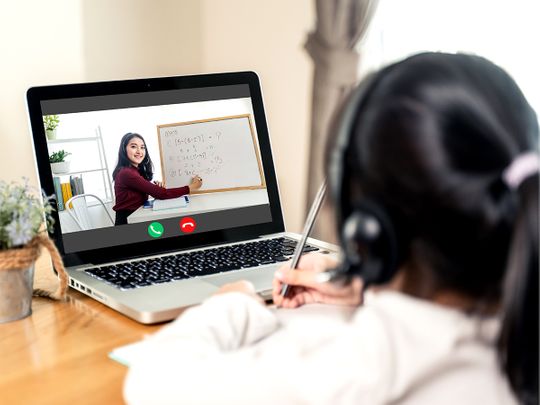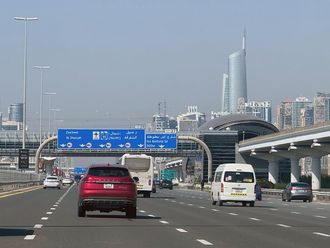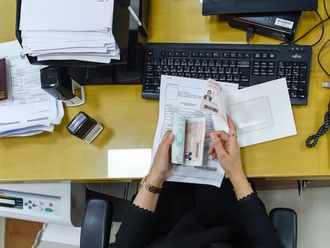
Dubai: Some schools in the UAE will continue to operate under the remote learning model till January 21, 2022, after an announcement was made by the National Emergency Crisis and Disasters Management Authority (NCEMA) on Wednesday, January 12.
Earlier, NCEMA had announced that the first two weeks of the new term – from January 3 to January 14 – would be conducted through the remote learning method. The new announcement now extends the remote learning period from January 17 to 21, 2022.
When announcing the one-week extension of remote learning for schools and universities, the authority also added that all tests and examinations that require in-school or university attendance will be postponed until after January 28, 2022, based on the assessment of the COVID-19 pandemic situation in the country.
Who does this decision apply to?
NCEMA said that this decision is applied on the national level and local authorities and teams in each emirate have the flexibility of implementation.
So, if you are wondering whether schools and universities in your Emirate will remain open or have remote learning, here are all the latest updates from local educational authorities in each Emirate.
Abu Dhabi
On January 12, the Abu Dhabi Media Office also announced that the Abu Dhabi Emergency, Crisis and Disasters Committee has approved the decision to extend distance learning from January 17 to 21, “to enable all education facilities to be fully prepared for a safe return for students.”
The announcement applies to all public and private schools in the Emirate, as well as universities, colleges and training institutes.
Dubai
On December 28, 2021, Dubai’s Knowledge and Human Development Authority (KHDA) announced that it was going to continue regular face-to-face education in Dubai private schools. However, KHDA stated that from January 3, 2021, all trips, events for Dubai private schools will be on hold for two weeks. Extra-curricular activities and canteens are also closed in Dubai private schools.
Sharjah
The most recent announcement on school re-openings in Sharjah was made on December 29, 2021, by the Sharjah Private Education Authority (SPEA), where it said that educational facilities in Sharjah would resume face-to-face learning from January 3, 2022. However, the authority also said that all classroom and extracurricular activities, including morning assembly and school trips, would be suspended until further notice.
Stay home if sick
On January 12, SPEA also tweeted about how parents and students needed to exercise caution to ensure the safety and health of the community. Providing a detailed list of symptoms in a post, the authority advised students to stay home if they were unwell.
Here is the guidelines provided by SPEA:
When should a student stay at home?
1. If he/she tested positive for COVID-19.
2. If he/she was a close contact of a person who tested positive for COVID 19.
3. Additionally, the student must stay at home if he/she is showing any one of the following symptoms, but not limited to:
- Fever (Temperature equal to 37.5°C/99.5°F or greater).
- Dry cough.
- Tiredness, body ache or pain.
- Sore throat.
- Diarrhoea or vomiting.
- Conjunctivitis.
- Headache.
- Loss of taste or smell.
- Rash on skin or discolouration on fingers or toes.
- Difficulty in breathing or shortness of breath.
- Chest pain or pressure.
- Loss of speech.
What should a parent do if the child displayed one of the mentioned symptoms/conditions?
- Keep the child at home.
- Inform the class teacher/ the admin assistant/ the school/nursery nurse.
- If the symptoms are related to COVID-19, or if the child's PCR test result was positive, or if the child was a close contact of a COVID-19 positive case, the parent must keep the child at home and immediately inform the school/nursery by email.
What will happen if a sick student comes to school/nursery?
- The student with symptoms will not be allowed to board the school bus or enter the school/nursery premises.
- If the symptoms appeared during working hours, the student would be triaged and sent to the isolation room.
- The parents must collect the student within 30 minutes (as soon as possible) from receiving the notification call from the medical team of the school/nursery if the student's condition is medically stable. If the student’s condition is not medically stable, an ambulance will be called upon.
- If the student was identified as a COVID-19 suspected case (based on MOHAP criteria), he/she will be required to have a COVID-19 test and will not be allowed in school/ nursery until they provide a negative result.
When can the student physically join the school/nursery?
For non-COVID-19 related illness: If the student is symptom-free for at least 24 hours before joining the school/nursery without using any fever reducing medication, he/she can physically join the school/nursery after submitting a negative PCR test result.
For COVID-19 Close Contact: After completing the quarantine period along with a current a negative PCR test result and having no symptoms.
For COVID-19 PCR positive: Only upon submission of the "De-isolation Certificate" from a MOHAP healthcare facility.
The importance of booster shots against COVID-19
In the press briefing on January 12, NCEMA also urged students and educational staff to receive the COVID-19 booster shot.
Dr Noura Al Ghaithi, Official Spokesperson of the UAE Health Sector, explained that vaccines, both primary and booster shots, can significantly help reduce infection, hospitalisation and death rates and curb the spread of variants.
How do I receive a COVID-19 booster shot?
If you live in Dubai and have received both shots of COVID-19 vaccination, and want to book an appointment for a booster dose with Dubai Health Authority (DHA). Read our detailed guide here.
For a nationwide breakdown on how to get a COVID-19 vaccine or booster shot in all seven Emirates, read here.
After you have completed both your doses, there should be a three to a six-month gap for you to be eligible for a booster dose. Whether you had Sinopahrm, Pfizer-BioNTech or Sputnik, the Ministry of Health and Prevention provided the required period for the booster shot of each vaccine. Read here for a comprehensive guide.
Dubai’s Health Authority also announced its period for booster shots, which covers more vaccines, such as Johnson&Johnson and Moderna, find out how many booster doses you need depending on the type of vaccine you originally received here.







